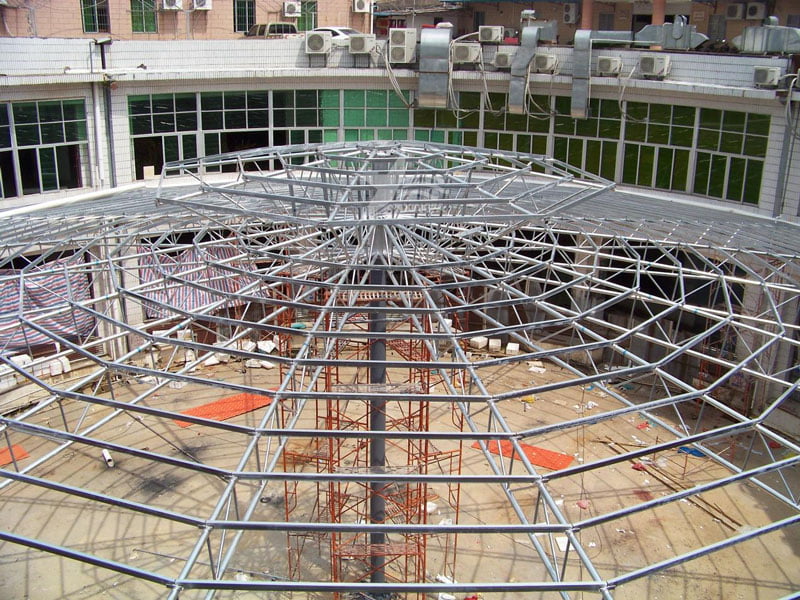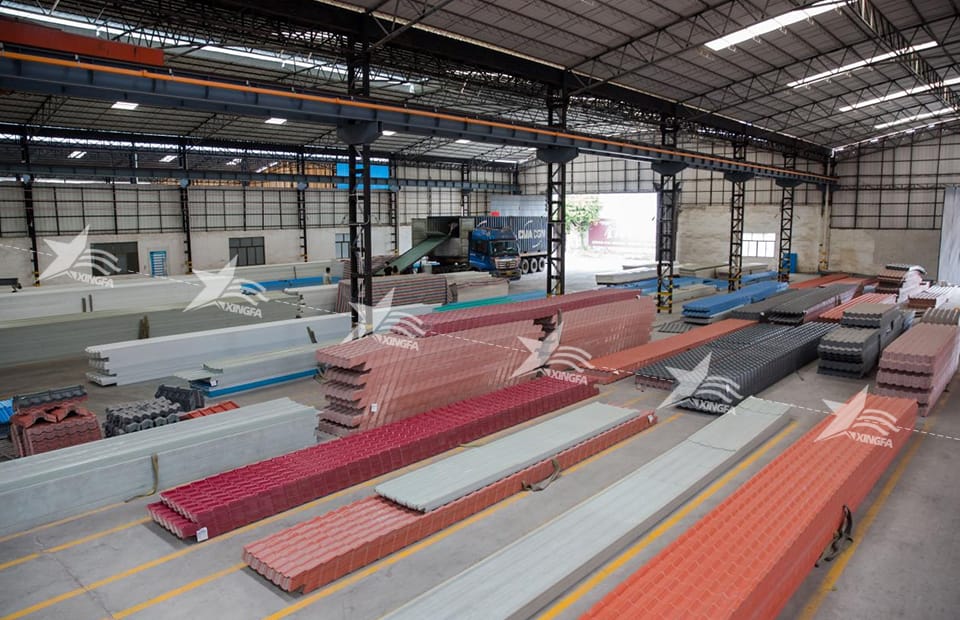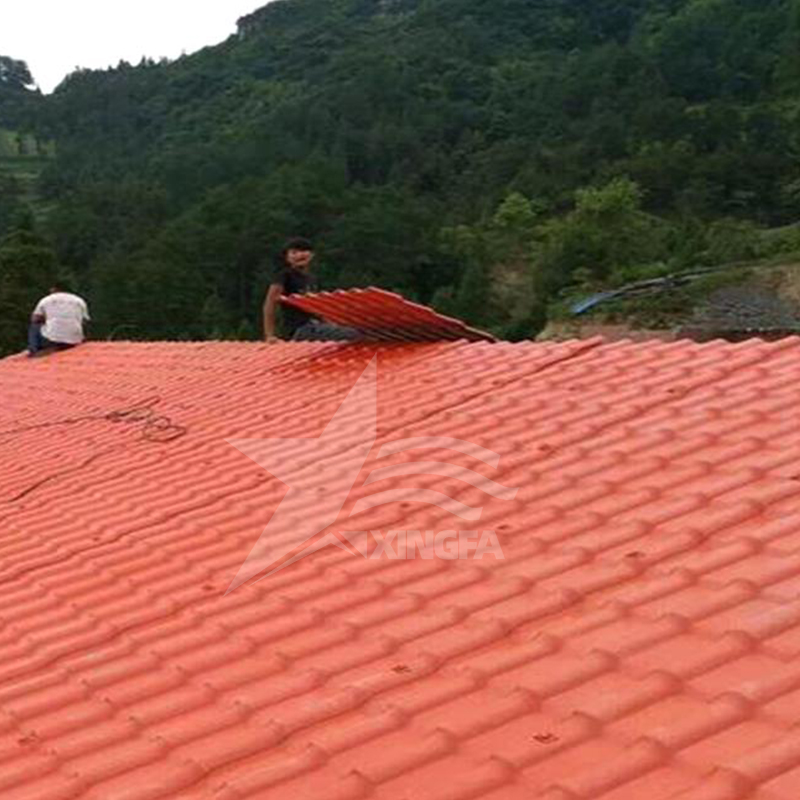Synthetic resin tiles are widely recognized for their appearance and performance as roofing materials, and an increasing number of people are considering using them when building houses. However, there may be limited understanding among individuals regarding the support structure for installing synthetic resin tiles. Today, we will briefly introduce the support materials and related requirements for synthetic resin tiles to help you better understand!

The installation requirements for synthetic resin tiles are relatively simple and can be applied to roofs with steel, wood, or concrete structures. Support materials can include square steel tubes (60×40×3mm), C-shaped steel (100×50×20×3mm), or anti-corrosion wood square materials (60×40mm). If square steel tubes or C-shaped steel are chosen as support materials, they need to undergo anti-corrosion treatment to prevent corrosion and rust, ensuring the overall lifespan of the house.

When installing synthetic resin tiles, it is necessary to design the spacing of purlins based on the width of the tiles. For example, for synthetic resin tiles with a width of 880mm, the maximum purlin spacing should be 660mm; for 1050mm wide synthetic resin tiles, the purlin spacing should be 750mm. During the actual installation process, the purlin spacing should not be increased arbitrarily, as this could lead to issues such as sagging or warping of the synthetic resin tile roof during use.
Furthermore, when installing synthetic resin tiles, local climate conditions should also be taken into consideration. In areas with high wind and heavy rainfall, the spacing should be further reduced to increase the number of fasteners. The number of fasteners can be increased from 4 per square meter to 6. Additionally, different screw materials should be used based on the support structure, such as self-tapping screws or stainless steel angle nails for steel structures, and self-tapping screws for wood structures. After installing the fasteners, remember to cover them with waterproof caps to prevent rusting.

With the brief overview provided above, you should now have a clearer understanding of the support structure for synthetic resin tiles. This will help you choose the appropriate materials and installation methods to ensure the stability and lifespan of the roof structure.










